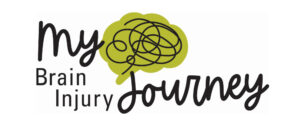Audiologists and speech-language pathologists (SLPs) in public schools face many challenges every day. Alongside their day-to-day work, they need to navigate relationships with students, teachers, administrators, and even caregivers. Along the way, there are sure to be some hiccups, and these hiccups may have ethical components.
A new forum from Special Interest Group 1, Language Learning and Education, provides school-based clinicians advice on real-world ethical issues that they may face in their work. The five articles look at clinical scenarios through the eyes of Maria, a hypothetical lead speech-language pathologist (SLP) in a suburban school district.
An Introduction to Ethical Decision Making
The forum opens with an introduction from guest editor Lissa Power-deFur, establishing the concept of the forum and presenting a five-step ethical decision-making approach. The article emphasizes the importance of stopping to consider an issue, encouraging thoughtful discussion, and evaluating all possible solutions.
In the next article, a former member of the ASHA Board of Ethics, A. Tucker Gleason, highlights several ethics resources available on the ASHA website and summarizes common ethics complaints. The ASHA Code of Ethics (2016), the Assistants Code of Conduct (2020), and general procedures of the BOE are summarized.
Ethics in Practice
With readers aware of ASHA’s resources, the next article by JoAnn Wiechmann focuses on two case studies. These case studies showcase ethical issues in schools related to interprofessional disagreements and the intersection of an SLP’s personal life and workplace performance. Wiechmann’s case examples serve as models of the various factors that one must consider when providing a compassionate, yet ethical, solution.
While school-based practitioners navigated the challenges of telepractice in early 2020, some soon learned to embrace the utility and flexibility it offered. The next article in the forum, by Kellyn Dailey Hall, looks at the ethical implications that school-based SLPs should consider when exploring telepractice opportunities now that schools have reopened. Hall suggests a solution that balances the needs of the SLP, students, and the district as a whole.
The final article in the forum looks at the five-step approach in regard to diversity and cultural responsiveness. The author, Luis F. Riquelme, highlights the many factors that can impact the relationship between the professional and a student, writing that increased awareness of these factors is key to offering culturally responsive services.
Additional Ethics Resources
ASHA members serving schools face new and unique challenges every day, but ethical issues don’t have to be one of them! We hope that this forum can inform school-based SLPs about the realities of ethics in the workplace and can help SLPs struggling with ethical issues meet them head-on.
You can find more information on ASHA’s Ethics Resources page. This page contains the ASHA Code of Ethics (2016), the Practices and Procedures of the Board of Ethics (2022), and many other helpful resources and articles for ASHA members and certificate holders who have ethical concerns.
We’d like to thank Dr. Power-deFur, as well as all of the authors, for providing their expertise for this important forum in Perspectives. You can read the entire forum or check out the individual articles below!
Explore the Forum
Gleason, A. T. (2022). Resources for ethical decision-making. Perspectives of the ASHA Special Interest Groups, 7(1), 6–12. https://doi.org/10.1044/2021_PERSP-21-00175
Hall, K. D. (2022). Tele-ethics in communication disorders: Asking the right questions, finding the right answers. Perspectives of the ASHA Special Interest Groups, 7(1), 18–26. https://doi.org/10.1044/2021_PERSP-21-00211
Power-deFur, L. (2022). Ethical challenges in special education? An approach for resolution. Perspectives of the ASHA Special Interest Groups, 7(1), 1–5. https://doi.org/10.1044/2021_PERSP-21-00210
Riquelme, L. F. (2022). Ethics and diversity: Doing the Right Thing?. Perspectives of the ASHA Special Interest Groups, 7(1), 27–34. https://doi.org/10.1044/2021_PERSP-21-00261
Wiechmann, J. (2022). Ethical issues of working in special education. Perspectives of the ASHA Special Interest Groups, 7(1), 13–17. https://doi.org/10.1044/2021_PERSP-21-00244









